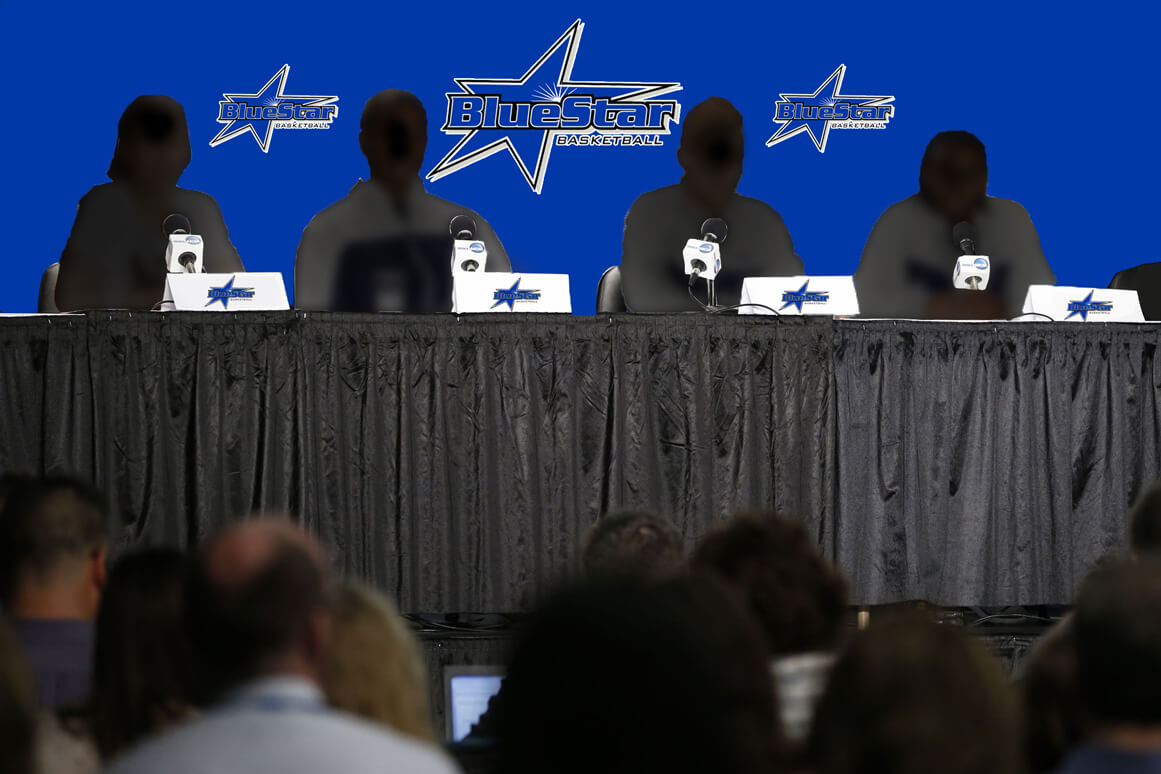If numbers don’t lie, then two obscure women’s sports advocacy groups and a high-profile female sports columnist have recently laid a withering indictment on the college athletic hierarchy when it comes to hiring women coaches.
But the problem with the results of a gender and coaching “report card” issued over the holidays is that the conclusions are based only on a facile collection of statistics, and rooted in a three-decades-old grievance that the college sports establishment is routinely conspiring to deny women career opportunities in coaching.
The project conducted by the Tucker Center for Research on Girls and Women in Sport and the Alliance of Women Coaches, and avidly seconded by Christine Brennan of USA Today, surveys the percentages of women coaches at 76 big-time college athletic departments over the last two years, including the current 2013-14 season.
In classic schoolmarmish fashion, each athletic department is “assigned” a “grade” – A through F. Using this scale, the report found that only the University of Cincinnati (80 percent female coaches for women’s teams) rated the highest mark.
A majority of the schools fell into the D and F categories, with Oklahoma State rock bottom at 12.5 percent.
Overall, according to the report, women occupy only 38.6 of the women’s coaching positions examined. In women’s basketball, 60 percent of the coaches are women at these 76 schools, which come from the ACC, SEC, Big 10, Big 12, Pac 12, Big East and American Athletic Conference.
I’m not suggesting that women coaches are free from hiring discrimination, and that nothing more needs to be done to encourage females to consider coaching careers. Tucker Center associate director Nicole LaVoi, who compiled the report, suggests schools enact a female version of the NFL’s “Rooney Rule,” which requires teams to interview at least one African-American candidate for head coaching vacancies.
That doesn’t sound unreasonable, but LaVoi may not be aware that in women’s basketball, overt efforts have been underway for years to push women into high-profile coaching positions, sometimes ahead of better-prepared males who’ve learned how to run programs below the power-conference level.
The real objective of this “report card” is to shame athletic departments into hiring more women, just for the sake of hiring more women:
“More and more, they are hiring men to coach women’s teams, failing to give female athletes the professional opportunities they deserve after their playing days are over and, perhaps just as important, failing to provide girls and women with female coaching role models so they might someday aspire to those jobs.”
Brennan’s stenography on this subject is well-established, but even a modicum of reporting would have yielded a more complex view.
Hartford Courant columnist Jeff Jacobs has done this reporting. In addition to Geno Auriemma, Jacobs talked to UConn Senior Associate Athletic Director Deb Corum, who’s experienced in conducting coaching searches in previous administrative roles at Stanford and LSU. 
She’s a former associate commissioner of the SEC, served on the NCAA Division I women’s basketball committee and in my estimation is one of the smartest people working in the gender equity field in college athletics. Very gently, she took issue with what the “report card” suggests, telling Jacobs:
“My thought is that a more accurate study would be to find out in-depth if there are qualified women who want to go into coaching that are not having the opportunity. My experience is a lot of our female athletes choose different careers. They don’t want to take the path of coaching or officiating.”
“Do the facts behind the numbers show a real problem? I’m not sure.”
And later:
“Do we have women who want to be coaches and aren’t getting the opportunity? I’m not seeing that in my world.”
Corum is too kind, but going “in-depth” was never the intention of this project. The Tucker Center, which is based at the University of Minnesota, has a history of agenda-based “research” that’s glorified bean-counting, as if female athletic progress should be judged on numbers alone.
(I wrote about some of what the Tucker Center does in my 2012 e-book, “Beyond Title IX.”)
The gender and coaching “report card” the Tucker Center produced presents numbers anyone could pull from athletic department websites, then mixes in a stale, warmed-over narrative that things are worse for women coaches than ever.
The operative phrase used by the agonists is “The Glass Sneaker,” and this morphed into a dubious ESPN The Magazine report two years ago, “The Glass Wall.” (I blogged about it at the time.)
If you read deeply into that piece, you will find another female administrator pointing out that “there isn’t a [women’s] job that isn’t dominated by male applicants.”
Nowhere in the Tucker Center “report card” is there any documentation that this aspect of the issue had been explored. Did the researchers talk to athletes, coaches, administrators or anyone else who could provide nuance and context for the findings?
It doesn’t look like it.
Did the researchers examine the effectiveness of coaching development initiatives, such as the Women’s Basketball Coaches Association’s So You Want to Be a Coach? seminar at the Final Four, and which specifically targets female college players?
We don’t know because there’s no mention of any of this.
Statistics should be starting points for research.
But the Tucker Center uses cherry-picked numbers merely to pound away at overstated obstacles in the abstract, with no interest in what’s beyond the figures at hand. That’s not scholarship; that’s dogma.
More disturbingly, this “report card” places a higher priority on the careerism of women than in demanding that female athletes be provided with the best coaches.
On the Sunday after the “report card” was issued, I watched Auriemma’s UConn dispatch Cal, which reached the Final Four last year under Lindsay Gottlieb, one of the brightest young coaches in the sport, in a game at Madison Square Garden.
After that, Duke, coached by Joanne P. McCallie, rebounded from its UConn loss earlier in the week with an impressive road win at a sold-out Rupp Arena over Kentucky, where Matthew Mitchell has built a Final Four contender.
It’s clear that gender doesn’t matter to the players of these coaches, nor to their athletic directors, nor to the fans of their teams.
You can go around the country in this sport and find the same sentiment.
So why give the shoddy work of axe-grinders so much attention? First of all, to illustrate how bad it really is. And secondly, to counter uncritical mainstream media treatment of the topic, exemplified by Brennan.
In recent months, those involved deeply in women’s college basketball have been mulling the findings of Val Ackerman’s white paper, which mentioned a strong need to develop better coaches.
The WBCA quickly formed a working group to address that issue, appointing male and female coaches whose single goal is helping to improve their sport.
If the Tucker Center and Alliance of Women Coaches wish to take a mulligan – which I doubt they will – they should devote their energies to understanding the coaching environment in women’s basketball and other women’s sports without a gender filter.
Of course, the headlines wouldn’t be as much fun to write, and Brennan wouldn’t be able to pontificate.
And I’d have to find something else to be cranky about too.
Wendy Parker is a sportswriter and web editor who has covered women's basketball since the early 1990s. She is a correspondent for Basketball Times and formerly covered women's and college sports, soccer and the Olympics at The Atlanta Journal-Constitution. She is the author of "Beyond Title IX: The Cultural Laments of Women's Sports," available on Amazon, and the creator of Sports Biblio, a blog about sports books and history.

Latest Articles
-


Christopher Lawlor
/ 5 days agoNo. 17 Ridgeline (UT), No. 24 Loyola Academy (IL) land in Blue Star Media Elite 25 girls’ basketball rankings; Major showdown in CIF-Southern Section Open Division final is feature matchup
BENSALEM, Pa. – When the girls’ high school basketball season tips off annually, it’s...
-


Events
/ 6 days agoNo. 21 Notre Dame (CA) rejoins Blue Star Media Elite 25 boys’ basketball rankings after reaching CIF-Southern Open Division final; EYBL Scholastic Conference raises bar nationally
BENSALEM, Pa. – Perhaps the biggest and best schoolboy basketball league in the land...
-


Christopher Lawlor
/ 2 weeks agoNo. 24 Paul VI Eagles (NJ) land in Blue Star Media Elite 25 girls’ basketball rankings; Indiana, Texas playoffs nearing state tournaments
BENSALEM, Pa. – There are occasions when it takes nearly an entire regular season...
-


Boys HS Rankings
/ 2 weeks agoNo. 10 CIA Bella Vista Prep (AZ) enters Blue Star Media Elite 25 boys’ basketball rankings; CIF-Southern Section Open Division playoffs tip with mixed results
BENSALEM, Pa. – When a team ascends the Nike EYBL Scholastic standing, that’s quite...



